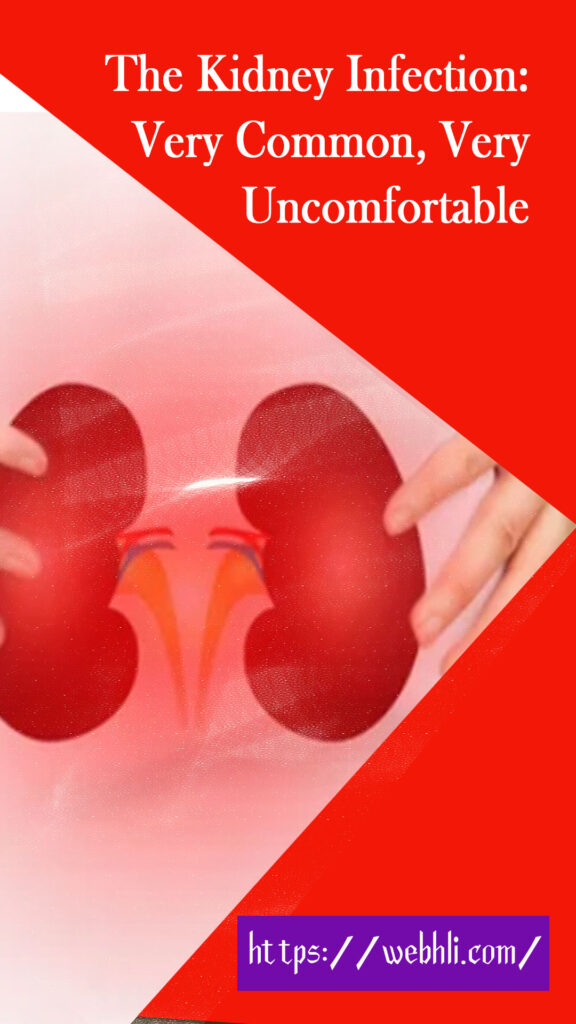
When most people think of pain related to the kidneys, they think of kidney stones. But a kidney infection can also cause a great deal of discomfort, and if untreated, can even lead to serious long term kidney damage.
Check out these related articles, too:
What You Should Look Out For For Kidney Failure Symptoms?
Kidney Failure Treatment Without Dialysis
Kidney Diet Secrets That Can Reverse Chronic Kidney Failure
The Effects of High Potassium For Kidney
What Is A Healthy Kidney Diet Plan
Diet Tips For People With Diabetes and Kidney Disease
Are Renal Insufficiency And Kidney Failure The Same Thing
5 Natural Supplements For Chronic Kidney Disease
Bitter Melon Recipe For Diabetes
Kidney infections, known medically as pyelonephritis (pyelos means pelvis of the kidney) and glomerulonephritis, often start in the bladder. If a person has low resistance, germs from the bladder can travel up the ureters to the kidneys and begin to multiply. An acute kidney infection starts suddenly with severe symptoms, then quickly comes to an end. A chronic kidney infection develops slowly and grows worse with time. A chronic kidney infection can lead to kidney failure.
We'll cover the glomerulonephritis type of kidney infection first.
Acute glomerulonephritis is an inflammatory kidney infection involving the renal glomeruli of the kidneys. It is believed to involve an antigen-antibody reaction which produces damage to the kidney in the glomerular capillaries.
Acute glomerulonephritis usually follows a streptococcal infection of the respiratory tract or sometimes a skin infection such as impetigo. But most often it's caused by an allergic or immune response to infections elsewhere in the body. Strep infection is the most common cause of glomerulonephritis
Chronic glomerulonephritis is a kidney infection that progresses slowly. It's generally characterized by inflammation of the glomeruli, which results in sclerosis, scarring and eventually, kidney failure. This variety of kidney infection usually develops insidiously and without symptoms, often over many years.
Many different kinds of infections can lead to glomerulonephritis, including pneumonia, syphilis, malaria, hepatitis, and measles. Chronic glomerulonephritis can also be caused by structural abnormalities or systemic disorders.
If the kidney infection is still present after one to two years, it may be considered chronic. This occurs in a very small percent of patients. Typically, the damage to the kidneys continues to progress, but so slowly that the patient is without symptoms. A normal life may be possible for 20 to 30 years, until the kidneys can no longer function. At that time, a kidney transplant or dialysis is necessary.
Pyelonephritis
Pyelonephritis is an inflammation of one or both kidneys. It may be acute, relapsing or chronic. This type of kidney infection can include complications like hypertension, chronic infection, renal insufficiency and kidney failure. Typically the this kind of kidney infection progresses very slowly. Patients sometimes have adequate kidney function for more than 20 years after onset.
Most kidney infections of this type result from bacterial infection, including intestinal bacteria and fecal flora that grow readily in urine. Pyelonephritis can be caused by any of the organisms that cause lower urinary tract infection. Certain conditions increase the likelihood of such an infection, including scars from previous infections, urinary tract infections, abnormal growth of the prostate gland, kidney stones, tumors, stagnation of urine due to back flow from the bladder, diabetes mellitus, trauma and even pregnancy.
Good Energy Food for Diabetics
10 Simple Food Concepts Every Person Living With Diabetes Should Know
Making Cheesecake For Diabetics
Enjoy the Taste and Benefits of Diabetic Foods
Will The Mulberry Leaf Help Your Diabetes?
5 DIABETIC FRIENDLY SALADS Some Tasty
DIABETIC LEMON COCONUT COOKIES Some Tasty
50 Healthy Diabetic Recipes That Are The Best
Symptoms of Kidney Infection
Symptoms and signs of some kidney infections are often vague and ill-defined. But symptoms associated with pyelonephritis are often acute, including fever, chills, back ache, and nausea.
Other symptoms of a kidney infection can include cloudy, foul smelling urine, fever, chills or weakness.
Treatment of Kidney Infection
Glomerulonephritis: rest and antibiotics. The treatment may continue for one to two weeks after tests of blood, blood pressure, and the urine indicates that the kidneys are back to normal. Sodium and protein may be restricted.
Pyelonephritis: the most important steps are to eliminate the bacteria with antibiotics and to unblock any obstruction. When the blockage can't be eliminated and infections persist, then long-term antibiotic therapy may be necessary.

 Protected by Patchstack
Protected by Patchstack